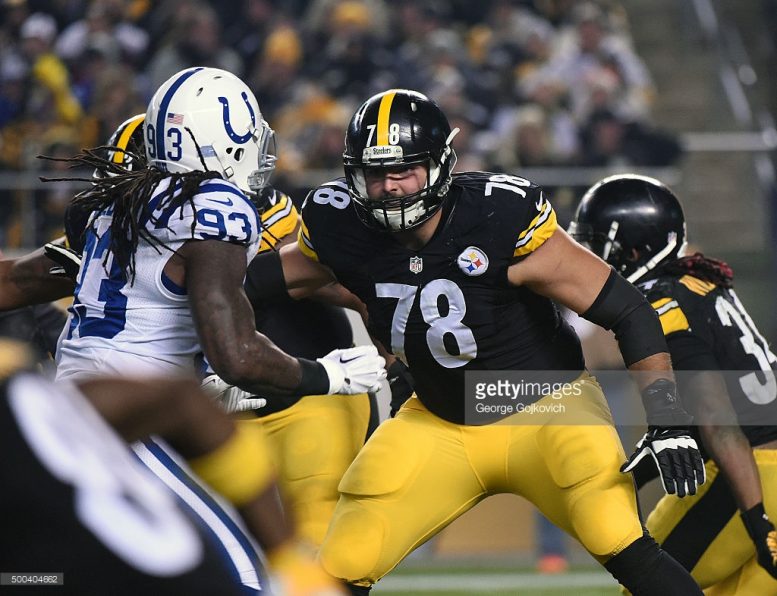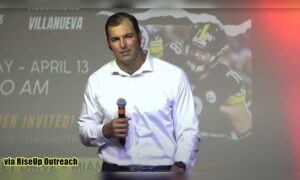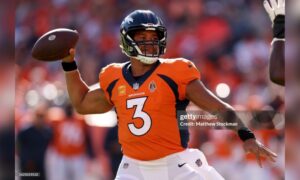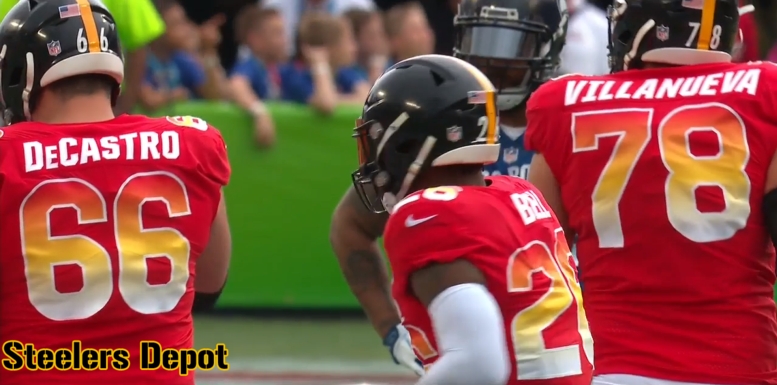You have probably been made aware by now of the fact that San Francisco 49ers quarterback Colin Kaepernick has chosen to engage in a personal protest, speaking out on social issues that he believes to be of dire importance. He has said—when asked—that he will not stand for the national anthem, a ubiquitous pre-game ritual, until he sees that something has been done to rectify racial inequalities around the country.
“I am not going to stand up to show pride in a flag for a country that oppresses black people and people of color”, he said. “This is bigger than football and it would be selfish on my part to look the other way. There are bodies in the street and people getting paid leave and getting away with murder”.
The latter part of his statement makes it clear that he is referring at least in part to the number of high-profile shootings of African-Americans at the hands of law enforcement officials, many of which have been captured on video and endlessly renewed public discussions that went nowhere.
I was going to keep my peace on this topic until Pittsburgh Steelers left tackle Alejandro Villanueva, a former Army Ranger and a decorated combat veteran, was asked to offer his opinion on Kaepernick’s decision to file a protest by choosing to sit out the national anthem.
“I don’t know if the most effective way [to protest] is to sit down during the national anthem with a country that’s providing you freedom, providing you $60 million a year … when there are black minorities that are dying in Iraq and Afghanistan for less than $20,000 a year”, he said.
While Villanueva said that “it’s his decision”, and even added that “he has brought up the issue in a great way”, he raised concerns that if others followed suit, it could send the wrong message. And indeed it appears that others may follow Kaepernick’s lead.
“As a service member”, he said, “I have to understand” Kaepernick’s decision. But he warns that the quarterback “has to be a little more careful and look at the big picture of the things he is doing”, because “he has a huge platform” and “he has to see the impact that he has on a lot of people’s lives. I don’t think it’s the most effective way”.
And yet, is it not the most effective way? What else could Kaepernick have chosen to do that would have drawn such attention to the point that he has meant to raise? The reason that we are even talking about Kaepernick is because he chose to sit during the national anthem. His action is what leant a voice to his message.
One can certainly argue whether or not it would do any good for a football player to raise awareness to a cause that, frankly, almost everybody is already aware of and has formed an opinion on. In practical terms, it will accomplish very little, if Kaepernick’s agenda is to foster meaningful action, to be sure.
But Villanueva also talked about how he was taught to be thankful for his country at West Point, and he acknowledged that he can’t “expect people to have that feeling when they hear the national anthem” and whatnot. And I think here he has the right of it.
The anthem, and the flag, are symbols, and symbols are signifiers of meaning. While the meaning of some symbols are fixed, others are embodied on a personal level. For Villanueva, when he sees the flag, and hears the anthem, his thoughts turn to the sacrifices that countless men and women have given to produce the freedoms that many Americans quite honestly take for granted, including the right to protest.
For others, such as Kaepernick, when they look upon the flag, they may feel some level of that sense of sacrifice as well, but they also see, more sternly, not the freedoms that have been won, but the ones that are still lacking, in their mind. And in that void is the embodiment of what those symbols are supposed to represent.
Until the reality of the country matches the ideal that the anthem intends to extol, for perhaps an increasing number of people, there will be those who believe that we fall short of our responsibilities and promises as a nation.
The flag, the anthem, they belong to every citizen of the United States, and it can’t be dictated to anybody what they represent. In that manner, I don’t believe anybody is in the position to tell Kaepernick what he should do.
By that same token, everybody is free to agree or disagree with not only his message, but also the manner in which he goes about communicating that message. For my part, it is not my position to use this sliver of public platform to advocate or condemn the substance behind his protest.







